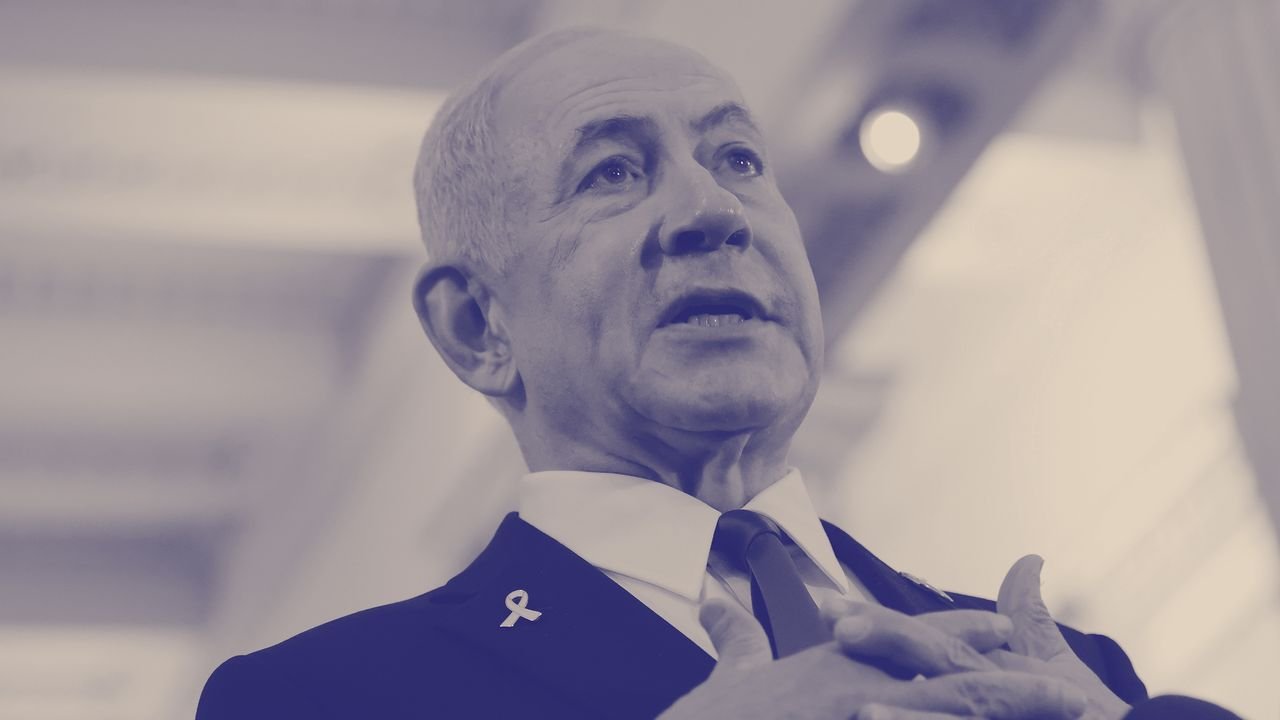
On Friday, Benjamin Netanyahu’s government approved a plan for Israel to take control of Gaza City, where about a million Palestinians—about half of the population in all of Gaza—are now living. Many have been forced to shelter there; the Israeli military has taken control of seventy-five per cent of the rest of the territory. Netanyahu’s plan, which he says is necessary to “eliminate Hamas,” is opposed by much of Israel’s military leadership, and even by a number of centrist and center-right politicians. But he seems intent on continuing Israel’s war in Gaza, in part to maintain the support of far-right members in his cabinet, who have talked openly about resettling it and pushing Palestinian residents to “emigrate.” A true invasion of Gaza City might not happen for days or weeks, if it does at all—there has been some speculation that the threat of invasion is a negotiation tactic to get Hamas to release the remaining twenty or so living hostages still being held in Gaza. But, if the invasion moves forward, it is almost certain to exacerbate the horrific humanitarian situation. As of Saturday, according to the Gaza Health Ministry, two hundred and twelve Gazans have starved to death since the start of the war, and those who remain are facing a worsening humanitarian crisis. The total Palestinian death toll is now more than sixty thousand.
I recently spoke by phone with Amos Harel, a defense analyst at Haaretz, about the military and political dimensions of Netanyahu’s announcement. During our conversation, which has been edited for length and clarity, we also discussed what Netanyahu is really aiming for by ramping up the war, whether there are plans to repopulate Gaza with Israeli settlers, and how Netanyahu has changed since the war began.
What specifically is Netanyahu proposing militarily here and what makes this such an aggressive step?
There’s always the question of what Netanyahu actually means. He doesn’t mean what he says, and he doesn’t say what he means—so it’s sometimes hard to gather. What he’s saying out loud is that this is a way to finally defeat and destroy Hamas, and he’s saying that since all hope is lost regarding the negotiations for a hostage deal, the right thing to do would be to resume military pressure on Hamas. So what he’s suggesting is a reoccupation of Gaza City, something that Israel hasn’t done since the early months of the war. And then this time he claims that, if they push the population out of Gaza City and then finally deal with the Hamas militants there, it will gradually lead to a Hamas defeat, and somehow, in a miraculous way, the hostages will also be released.
So you force people out, and Hamas stays, and then you defeat Hamas? Isn’t that idea similar to what Netanyahu has talked about before, and it has not worked? Is there something new here?
I’m not a big Netanyahu fan, and you have to admit that previous attempts to take over cities didn’t achieve the goal of annihilating Hamas as he claimed. But, if you look at what happened in Khan Younis and in Rafah, Israel did push the population out almost completely. It happened quite quickly. You remember there was a heated debate between the Biden Administration and Netanyahu over Rafah, and yet Israel did push the population out and kill many Hamas militants there. Would anything different happen this time? I don’t think so.
The main difference between then and now is that Hamas is no longer a military organization. It used to be that there was a hierarchy. There were tight command-and-control networks. There were people in charge who made the decisions and so on. This is no longer the case. What you have now is a terrorist organization using guerrilla methods. Most of its leaders were killed. Most of its fighters are either injured or dead. They now have replacements who are younger, sometimes kids who get basic training and are sent to the front. How do you defeat such an organization? There’s no Iwo Jima moment.
My suspicion is that he’s not really after that. What he is interested in, for his political survival, is prolonging the war. It’s the best excuse for not doing anything else domestically, including not launching an independent investigation of October 7th. His corruption trial would probably be delayed if there’s hectic fighting going on. [Opposition politicians have called for a commission to look into the security and intelligence failures on October 7th. Netanyahu has rejected the idea, saying it would be predetermined, and warned about the role of the “deep state.”] And the extreme, messianic right-wing parties would be happy with a new attempt to occupy the Strip.
So, essentially, they tried this in other places at other points in the war, and it did get the population out, despite the humanitarian consequences.
And they also destroyed whole cities.
But, even if Israel did kill a lot of Hamas fighters and further weaken their chain of command, at this point its structure doesn’t really exist. And you have just this organization that is essentially recruiting new people from the population, even without a chain of command.
Yeah, sure. Hamas changed the rules of the game. And, if you don’t adapt to the different game, then the whole discussion about destruction is almost meaningless. Again, you’re not fighting an army of terror, so to speak. You’re fighting a new organization or a different version of an organization that isn’t worried too much about casualties, about destruction, about the above-ground population and its suffering. And, even if there are leaders, they have had numerous leaders since the beginning of the war. The others were assassinated by Israel.
What you’re describing seems like an insurgency, something that requires some sort of political solution.
To an extent, yes. In spite of all my criticism of Netanyahu’s policies, I can’t avoid the fact that we’re fighting quite an enemy here. It’s not a force that you can easily reason with or that behaves according to the same logic that Israel applies.
Which logic are you talking about?
That’s a good question. The logic is that, if Israel applies enough military pressure, then surely they’ll cave in because it would not be logical to keep resisting. This is not the right way. This is not the way Hamas operates. They have an extreme jihadi ideology, and I think, for them, it’s more about the long run and not so much about the here and now. If the Gaza Strip is destroyed, it doesn’t mean their new leader would feel some kind of remorse and decide to stop.
I keep reading that this latest push from Netanyahu is unpopular in Israel and also that Netanyahu is a political animal, which on the surface is a little bit of a contradiction, but you were saying earlier it might keep him in power. What did you mean?
First of all, it’s deeply unpopular according to the polls, but so is the government. All public-opinion polls since the beginning of the war show deep mistrust of Netanyahu, and show that he would lose if elections were held. Most people support a hostage deal and paying any price to get them back, including the release of all Hamas prisoners in Israeli jails. And also, there’s quite a stable majority for an independent October 7th investigative committee, which is extremely important because in the end it will probably show Netanyahu’s responsibility. But you need a no-confidence vote for him to face an election. And what he does better than anybody else is maintain his coalition by any means necessary. He has quite a stable majority in the Knesset, in spite of being extremely unpopular. In order to maintain that situation, what he needs is to keep his partners satisfied.
And then, of course, you have the two extreme right-wing parties led by Itamar Ben-Gvir and Bezalel Smotrich, and what they want is also clear by now. They don’t only want to win the war; they want total destruction of Gaza. They want what they call “voluntary emigration,” which is actually forced emigration after making life unbearable to any Palestinian in Gaza, and they want to rebuild settlements. By now it’s rather clear that these politicians are ready to have the hostages be killed by Hamas. It doesn’t matter to them.
Do you think Netanyahu wants settlements back in Gaza?
I think Netanyahu wants to survive politically. I think that, if it were possible for there to be a forced emigration of Palestinians while, at the same time, he and Israel survive, he would like that. But I think he’s much more astute than that, and he understands that this is extremely difficult to achieve and that the international backlash would be huge. So he doesn’t search for one goal. There are always a couple of balls in the air, and he decides at the last minute which path of action is better for him in order to survive. But it’s survival above everything else.
He comes from a famous right-wing family. He’s spent his whole career on the right and is a friend of settlements. He has warmly welcomed Donald Trump’s proposal, which, however seriously you take it, would essentially force Gazans out of Gaza to create a new “riviera” and lead to what I imagine would be some Israeli presence there. Why shouldn’t we believe that Netanyahu may desire this outcome, too, even if he won’t do it overnight?
Source link







